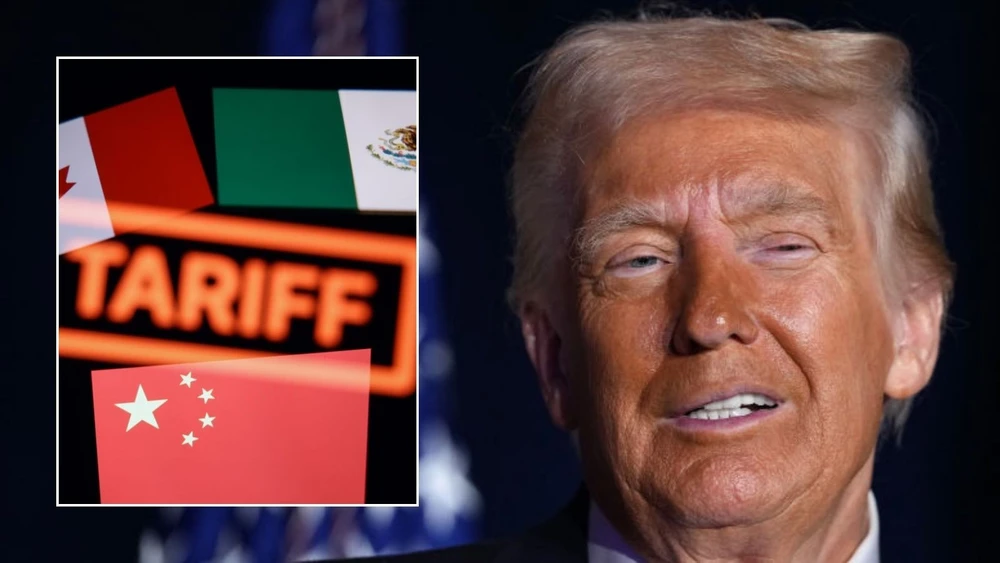The hotel industry is currently navigating a complex landscape shaped by President Trump’s tariff war, which poses significant challenges for hotel managers. Michelle Russo, founder and CEO of HotelAVE, oversees a $12.5 billion portfolio of properties and has observed firsthand the disruptions caused by trade disputes. As she outlines, these tariffs are not just a passing concern; they are reshaping operational strategies and forecasting in the hotel sector.
Understanding the Impact of Tariffs
Russo has revised her firm’s outlook for the year, predicting a potential decline in revenue per available room (RevPAR) by 5% year-over-year. While she hopes this forecast will not materialize, she emphasizes the importance of preparing for such scenarios. The uncertainty surrounding tariffs has already led to a slowdown in bookings across many hotels, with leads sitting unconverted due to hesitation stemming from economic instability.
Travel Confidence and Booking Behavior
Economic uncertainty has made potential guests hesitant to commit to reservations. Russo has noted a trend where companies may postpone business travel approvals until there is more clarity regarding the tariff situation. This hesitation can significantly impact hotel occupancy rates and revenue streams.
To counteract this trend, hotel managers should consider innovative pricing strategies. For example, offering compelling advance purchase deals that include penalties for cancellations can help lock in revenue. This approach contrasts with the traditional flexibility many hotels offer, which can lead to costly rebooking cycles.
Cost Containment Strategies
In light of rising operational costs, hotel managers must implement cost-saving measures that minimize the impact on guest experience. Russo suggests auditing recurring expenses and optimizing operations. For instance, distributing only one key card per guest instead of two can save costs on supplies that, while seemingly minor, add up over time.
Additionally, hotels should proactively manage supply chain disruptions by stocking up on critical imports and revising food and beverage menus. If certain products are expected to rise in cost due to tariffs, such as coffee from Hawaii, hotels must adjust their pricing strategies accordingly to maintain profit margins.
Labor Inflation Concerns
While tariffs are a significant concern, Russo also highlights the potential for labor inflation due to reduced labor availability resulting from stricter immigration policies. Many hotels rely on temporary labor, especially during peak seasons, through visa programs like H-2B and J-1. The uncertainty surrounding these visas could lead to labor shortages, driving up wages and, consequently, room rates.
As Russo points out, a labor shortage translates to higher operational costs, which may deter bookings and force hotels to seek even more cost containment.
Adjusting Marketing Strategies
Given the changing landscape, hotel managers should reassess their marketing strategies. Russo advises focusing marketing efforts on domestic markets and diversifying outreach to other countries. With geopolitical tensions potentially impacting travel from Canada and Mexico—two major sources of U.S. visitors—it’s crucial to adapt marketing campaigns to attract a broader audience.
Despite the challenges, a weaker U.S. dollar may eventually make the country more attractive to foreign travelers, providing a potential silver lining for domestic hotels. However, this outlook remains uncertain amid ongoing trade tensions.
Navigating Future Challenges
As the hotel industry grapples with the fallout from tariffs, it is essential for managers to remain agile and proactive. The economic implications of these policies extend beyond immediate cost increases; they threaten to reshape consumer behavior and travel patterns.
Hotels must develop strategic responses to ensure they continue providing value to guests while maintaining profitability. This includes being transparent with guests about any necessary price adjustments and enhancing the overall guest experience to foster loyalty.
The tariff war presents a unique set of challenges for hotel managers, requiring a multifaceted approach to navigate the evolving landscape. By focusing on cost containment, adjusting marketing strategies, and preparing for potential labor shortages, hotels can better position themselves for success in an uncertain economic environment.
As the situation develops, staying informed and adaptable will be crucial for hotel managers aiming to thrive amid the complexities of the current tariff landscape. The resilience of the hotel industry will depend on its ability to innovate and respond to the changing needs of travelers while managing the financial implications of tariffs.



